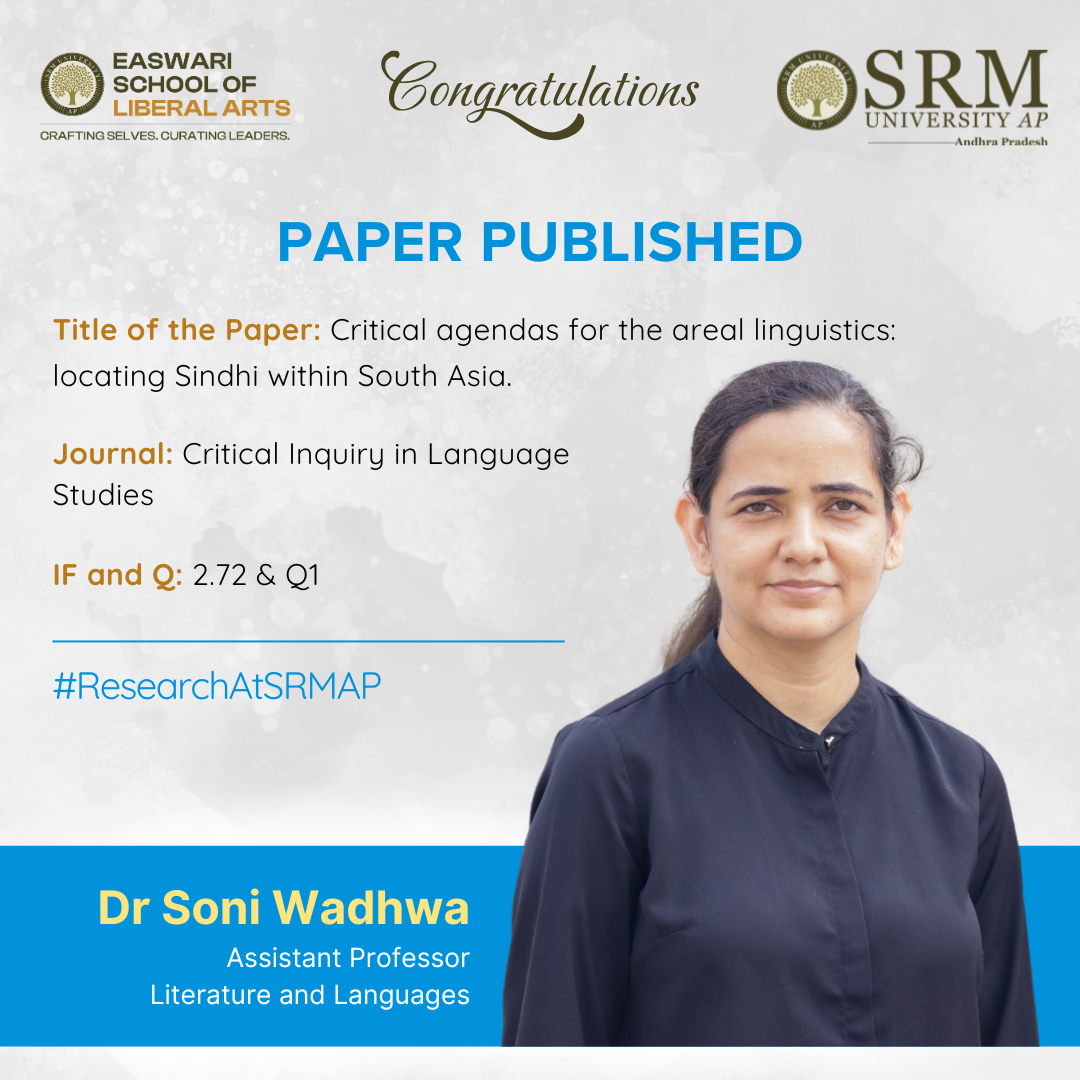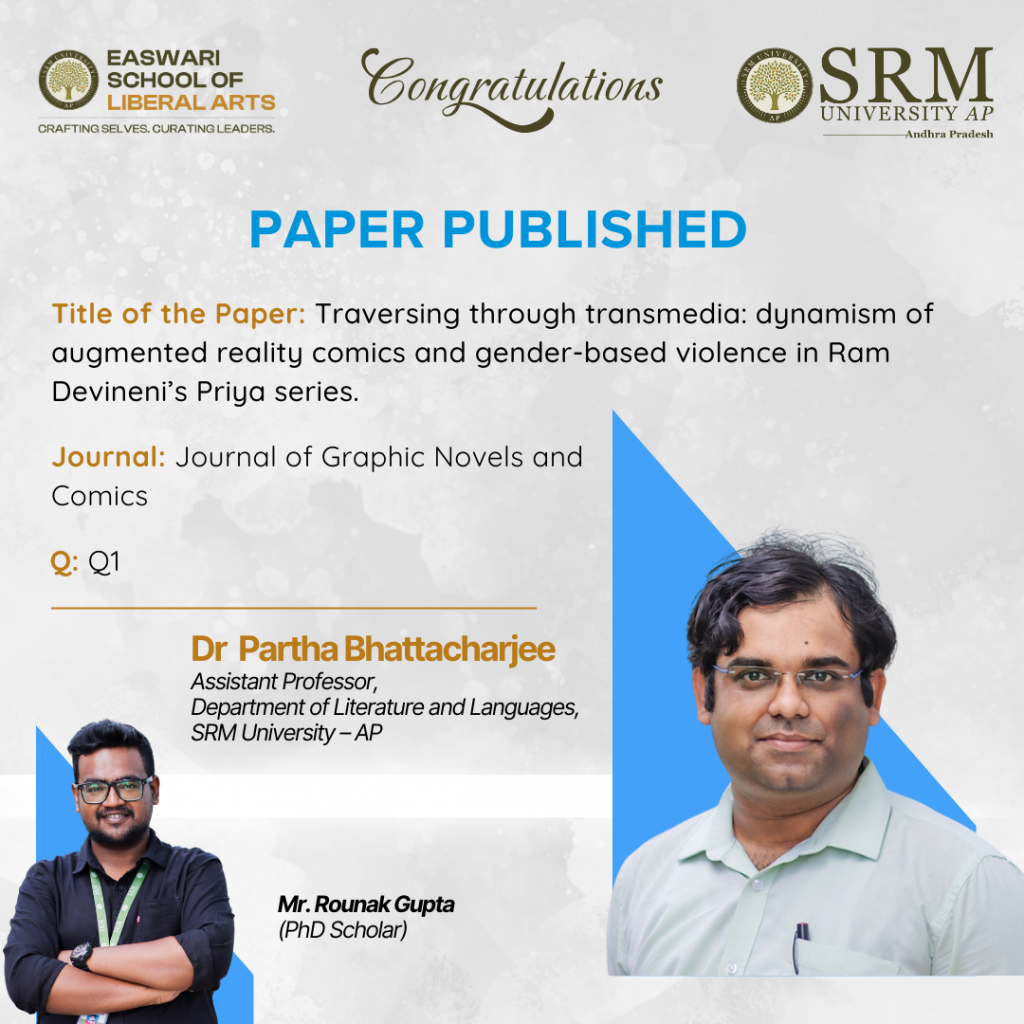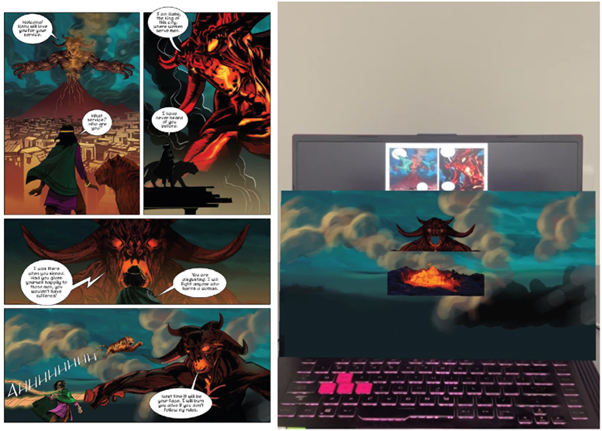- Critical agendas for the areal linguistics: locating Sindhi within South Asia May 20, 2025
 The Sindhi language presents a compelling case for examining the intersections of language, territory, and identity in the post-Partition context. In India, Sindhi often survives as a spoken language, primarily confined to the domestic sphere. This restricted use raises important questions about the conditions necessary for linguistic vitality.
The Sindhi language presents a compelling case for examining the intersections of language, territory, and identity in the post-Partition context. In India, Sindhi often survives as a spoken language, primarily confined to the domestic sphere. This restricted use raises important questions about the conditions necessary for linguistic vitality.Exploring the complexities surrounding Sindhi Dr Soni Wadhwa, Assistant Professor in the Department of Literature and Languages, has published a research article titled “Critical agendas for the areal linguistics: locating Sindhi within South Asia” in the Q1 journal Journal of Critical Inquiry in Language Studies. This publication contributes significantly to scholarly discussions on areal linguistics, offering critical insights into the precarious position of Sindhi and the broader implications for language studies in postcolonial South Asia.
This article explores these dynamics to foreground the often-overlooked role of technological, epistemological, and aesthetic resources in sustaining minority languages. In doing so, it positions Sindhi as a critical lens through which to understand the challenges faced by minoritised languages in the Global South, particularly those without a clear territorial anchoring.
Abstract
As a concept within applied linguistics, areal linguistics concerns itself with investigating the nature of structural similarities among languages produced by contact rather than by history or by genetic similarities. A critical look at its descriptive linguistic agendas reveals that the domain needs to be revisited in terms of questions of power relations and linguistic inequalities within specific linguistic
areas. Such investigations reconfigure the dynamics of geography and regionality within language as a site of power.This study seeks to make an intervention into India as a linguistic area with a focus on Sindhi, a non-regional language in India. Given that the language and the community do not have a state or a linguistic territory within India, the condition of Sindhi is characterised by a sense of precarity. Seen through the prism of India as a linguistic area, this precarity is not quite visible. In revisiting the celebrated concept of India as a linguistic area, this study suggests ways of asking contemporary questions about areal linguistics that go beyond describing the nature of contact among languages, and instead ask how this contact impacts the markers of hegemony over minor languages in terms of technological,epistemological, and aesthetic leverage.
Social Implications of the Research
This research might help in building further study around minority languages in India as well as elsewhere in the Global South, we empower more languages. This will help people who know regional languages access the Internet and other aspects that Digital India aspires to address.
Sindhis in India are scattered in different cities and speak the regional or state languages or English at home. This work helps in pushing more research on the language and the community which can further inform policies for linguistic empowerment.
Continue reading → - Analysing the Dynamism of AR Comics Through Ram Devineni’s Priya Series May 12, 2025

Dr Partha Battacharjee, Assistant Professor from the Department of Literature and Languages, and his PhD scholar Mr Rounak Gupta have published a research article titled “Traversing through Transmedia: Dynamism of Augmented Reality Comics and Gender-based Violence in Ram Devineni’s Priya Series” in the Q1 journal, Journal of Graphic Novels and Comics.
The paper points out how augmented reality can enhance the reading and receptive experience of comics that can address, teach, and educate people on complex social problems like gender-based violence.
Abstract
This article looks at how Ram Devineni’s comic series—Priya’s Shakti, Priya’s Mirror, and Priya and the Lost Girls—use augmented reality and Hindu mythology to raise awareness about gender-based violence in India. It shows how these comics break traditional storytelling methods to engage readers on serious issues like rape, acid attacks, and trafficking.
Practical Implementation/ Social Implications of the Research
It is an analytical research that helps understand how basic building blocks towards gender sensitisation can be developed using comics and augmented reality technology to ‘educate’ people in a much more immersive and interesting way.
The team will continue to develop a theoretical foundation for addressing transmedia approaches in comics and other seemingly static art forms.
Collaboration
Dr Priyanka Tripathi, Associate Professor, Department of Humanities and Social Sciences, IIT Patna
Continue reading →

